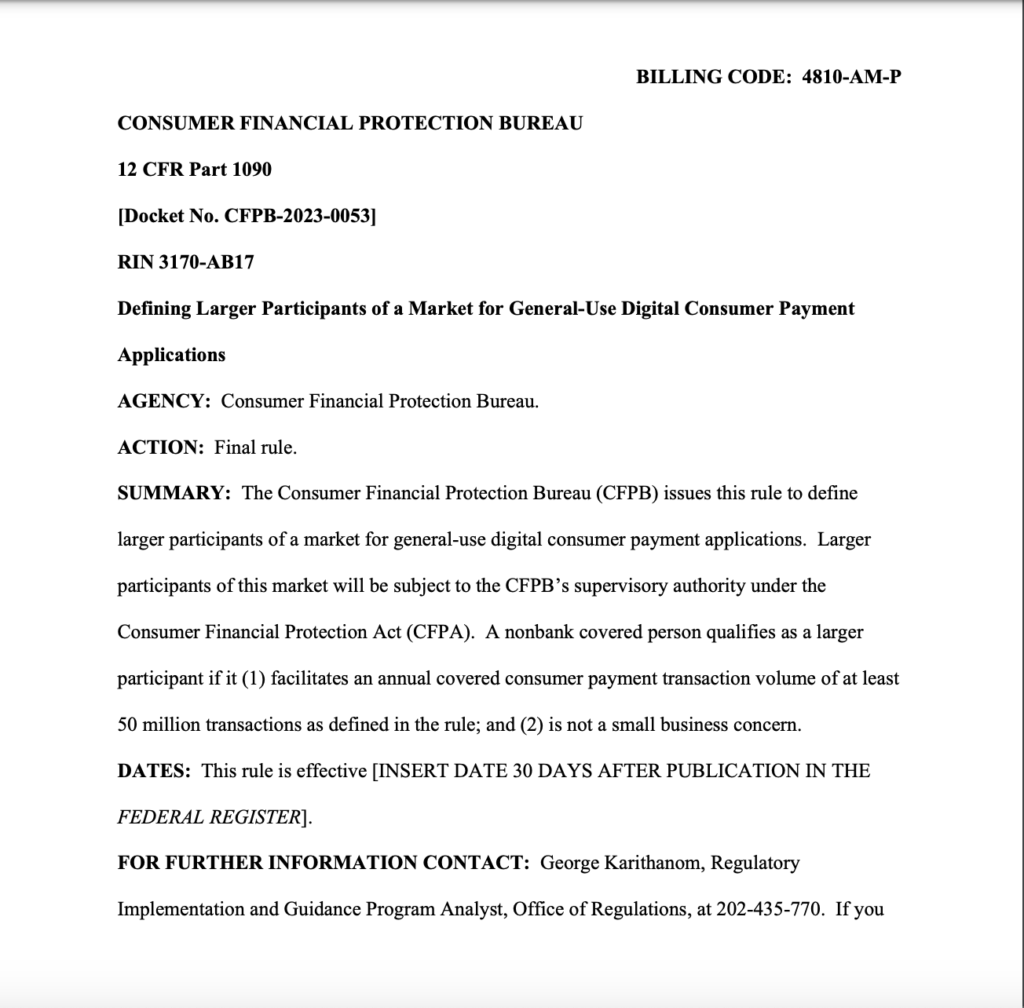The CFPB’s rules define “large participants” for digital payments, excluding crypto transfers, and apply to platforms like Apple Pay and Venmo.

As part of its finalization of the rules defining the “large participant” criteria for digital payment platforms, the Consumer Financial Protection Bureau (CFPB), which is a financial regulator in the United States, has excluded the transfer of crypto assets from the rule.
The final regulation will continue to apply to digital wallets like Apple Pay and centralized ‘peer-to-peer’ payment services, but only for transactions denominated in United States dollars.
The government agency reports that pro-crypto nonprofit groups and research-based investing firm Paradigm successfully resisted the Consumer Financial Protection Bureau’s initial implementation of the rule, which included digital asset transactions.
“The Final Rule limits the definition of ‘annual covered consumer payment transaction volume’ to transactions denominated in U.S. dollars. With this clarification, and a corresponding edit to paragraph (b)(3)(i), the larger-participant test in this Final Rule excludes transfers of digital assets — including crypto-assets such as Bitcoin and stablecoins.”
Beginning in September 2023, the Consumer Financial Protection Bureau (CFPB) prioritized digital payment systems such as Apple Pay, Google Pay, and ‘peer-to-peer’ payment platforms such as Venmo. It was at that time that the agency brought up the potential monopolistic concerns that could arise from large technology corporations driving out smaller competitors in the industry.

At the time, Rohit Chopra, the director of the Consumer Financial Protection Bureau, raised concerns about these corporations’ monetization of consumer data.Subsequent to the initial announcement, the Consumer Financial Protection Bureau (CFPB) advocated the supervision of cryptocurrency wallet providers.
However, the cryptocurrency business and MPs opposed the extension of oversight. In January of 2024, politicians from the United States issued a letter to the Consumer Financial Protection Bureau (CFPB) expressing their opposition to the regulation because of the potential impact it could have on cryptocurrencies.
The senators noted in their letter that peer-to-peer transactions through’self-hosted wallets’ are a core component of the digital asset ecosystem because they eliminate third-party risk.
Despite the objections, the Consumer Financial Protection Bureau (CFPB) appears to be stepping up its efforts to target blockchain video games in April 2024 due to the ability to trade in-game asset tokens on electronic exchanges outside of the gaming ecosystem.
